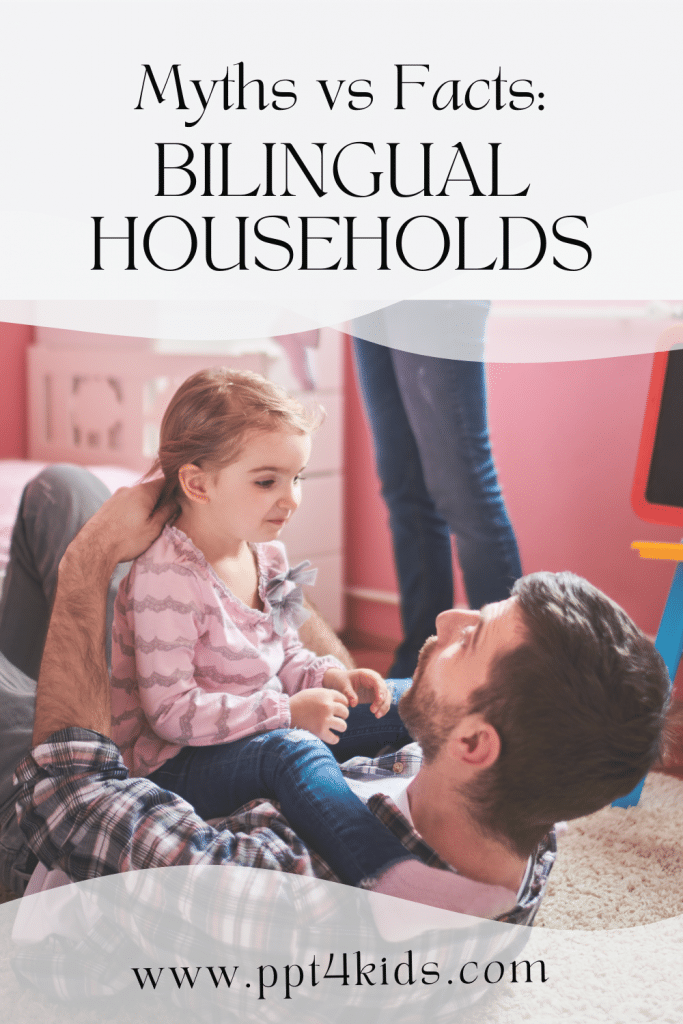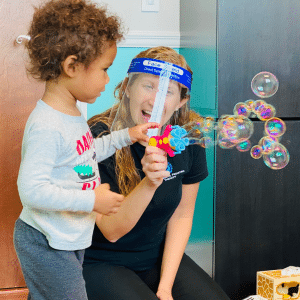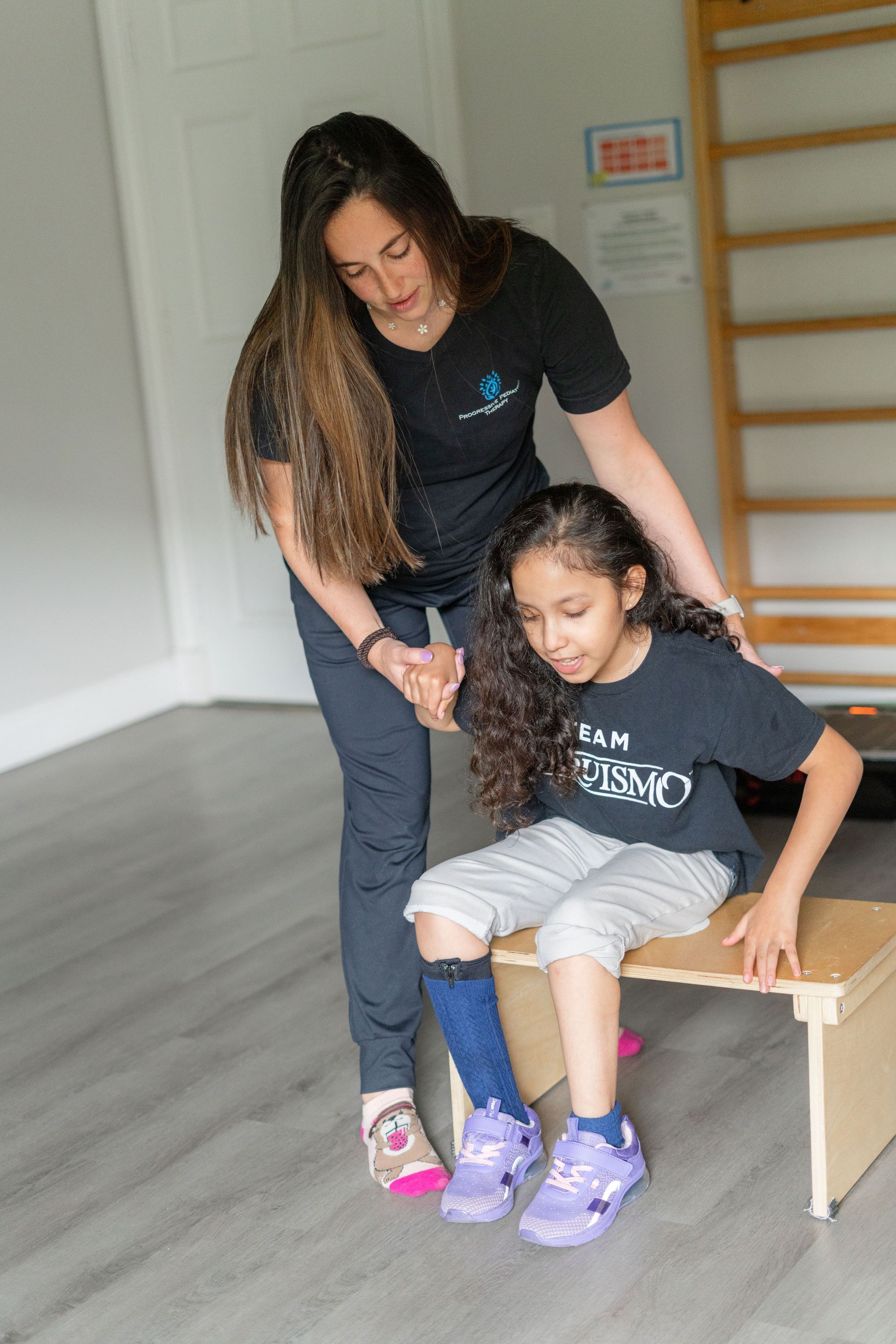Your Clinic
SET A LOCATION
Your Clinic
SET A LOCATION

Myth: If my child has a language delay, I should only speak to them in one language.
Fact: Research shows that children who have a language delay do not have any additional difficulties when compared to monolingual children with language delays.
Myth: Speaking to my child in two languages can cause a language delay.
Fact: While bilingual children can have language delays, bilingualism does not cause delays itself. In fact, bilingual children are able to learn language and develop as quickly as their monolingual peers.

Sources:
Algunos niños con retrasos en el lenguaje crecen en hogares y comunidades bilingües. A menudo, a los padres les preocupa que el aprendizaje de dos idiomas pueda afectar el retraso del lenguaje de su hijo. A continuación, se muestran algunos mitos comunes:
Mito: si mi hijo tiene un retraso en el lenguaje, solo debería hablar con él en un idioma
Realidad: Las investigaciones muestran que los niños que tienen un retraso en el lenguaje no tienen dificultades adicionales en comparación con los niños monolingües con retrasos en el lenguaje.
Mito: Hablarle a mi hijo en dos idiomas puede causar un retraso en el idioma.
Realidad: Si bien los niños bilingües pueden tener retrasos en el lenguaje, el bilingüismo no causa retrasos en sí mismo. De hecho, los niños bilingües pueden aprender el lenguaje y desarrollarse tan rápido como sus compañeros monolingües.
¿Qué puedo hacer para ayudar a mi hijo a alcanzar los hitos del lenguaje?
Si nota que su hijo sigue teniendo dificultades para aprender el idioma, programe una evaluación con su patólogo del habla y el lenguaje bilingüe local.
The post Bilingual Myths vs Facts! appeared first on PPT4Kids.









We empower children, families, and the community to learn, grow, and celebrate every child's unique abilities.
Quick Links
Contact Details
Phone: 561-376-2573 | 561-918-0190
Fax: 561-218-4939
VIP Concierge: 561-717-1764
Clinic Locations
All Rights Reserved | Progressive Pediatric Therapy, Inc. | Privacy Policy | Terms of Service
Site by Spearlance